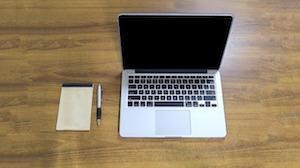
Making Lessons Come to Life at Museums
article written by Catherine Workman, Wellness Voyager

When parents and teachers want kids to learn about the past, they have several options. They can turn to history books and textbooks, ask people who experienced it to talk with children, rely on the internet for information, or give kids a hands-on experience with learning at a museum. Internet-based knowledge is a good starting point for kids who want to know basic background information, but it does not go far enough to enhance the educational experience and bring lessons to life for kids. By talking with experts and experiencing lessons hands-on, kids gain a better understanding of concepts and learn more because they can explore and satisfy their curiosity.
The Challenges of Internet-Based Knowledge
The internet has changed the delivery of education in several ways. Kids can access images, information, books, audio, and video in a few seconds. For kids in remote areas, the internet gives them access to learning, communicating, and collaborating in ways that seemed impossible just a few years ago.
Yet, there are challenges with internet-based knowledge. 93% of students conduct research online today, but many of them do not understand that not everything they find on the internet is accurate. Sites such as Wikipedia are popular resources for students; yet, anyone can log on to these sites and add information that is inaccurate. Younger students also do not understand that some sites are slanted and biased, so the information they receive is based more on opinion than fact.
Another challenge with internet-based knowledge is the dehumanizing impact it has on education. When kids interact with a screen instead of with a person, they do not have the opportunity to ask questions and engage in dialogue. They may get statistics and facts from their online queries, but they do not gain a deeper understanding of the ways in which war, famine, the Depression, oppressive factory conditions, and other historical and cultural situations affected the people who experienced them. Internet-based knowledge dehumanizes the educational experience and limits the knowledge kids can gain.
Museums as an Alternative to Internet-Based Knowledge
On the other hand, when kids visit museums, they have an opportunity to learn from people and artifacts from specific time periods. They can speak with experts, explore time periods, and become immersed in the educational experience.
Museums such as the National Churchill Museum in Fulton transport kids back in time by offering physical evidence of the past. Students can view — and in some instances even touch — photographs, letters, furniture, and other artifacts from Winston Churchill’s life and leadership. “The Blitz” lightshow allow kids to feel like they’re actually reliving a piece of history, and real news and video footage gives them even more perspective on the World War II era. Students can even play to learn, deciphering top secret codes using a replica Colossus. Interactive exhibits and knowledgeable volunteers offer students a more authentic experience than they would gain by scrolling through images online.
Any time that parents and educators can make lessons more relevant to kids, they should take the opportunity to do so. Real-life situations make the lessons more meaningful and give the children more experiences to remember and learn from long after they occur. When kids engage in their learning by experiencing it first-hand such as in a museum, the lessons make their way into their long-term memory; in fact, kids remember only 30% of what they see, but they remember 70% of what they discuss with others and 80% of what they personally experience. By involving students in their learning instead of just giving them time to explore online, we are putting them at the center of the educational experience and ensuring that they come away with new knowledge. Museums make lessons come to life for all who visit them.
Image via Pixabay by Joshua_Willson
“Leave the past to history especially as I propose to write that history myself.”